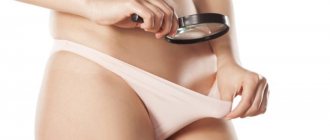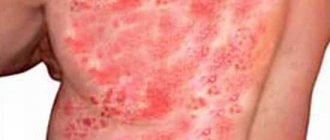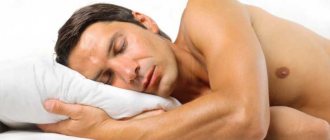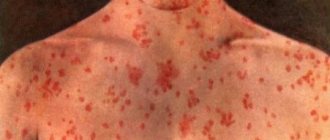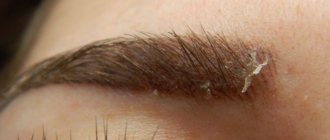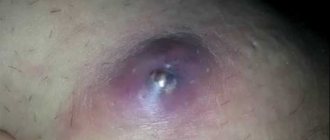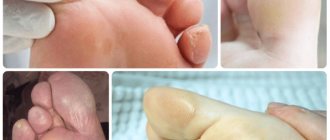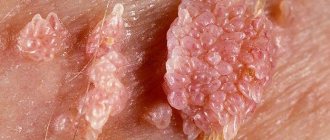Night sweats are an unpleasant symptom that deprives you of sleep and causes a lot of discomfort, but often people do not pay attention to it. Most of them, most likely, will not even think about going to the doctor and complaining about night sweats, especially if nothing else is bothering them. But in vain! A number of new studies suggest that night sweats may be the first sign of cancer, which manifests itself in the earliest stages, when the tumor cannot yet be visualized in any way. In addition, this symptom often accompanies the onset of tuberculosis development, and other symptoms may be absent at this stage. However, those who have a tendency to night sweats should not immediately sound the alarm and make dangerous diagnoses for themselves, but what is really worth doing is not letting things take their course and contacting a specialist.
Excessive sweating at night: when to sound the alarm
Regardless of the reasons, this condition cannot be ignored, attributing it to a bad microclimate, heat or stress. You risk missing a symptom of a dangerous disease! Contact your doctor if you notice one or more of these signs:
- Under comfortable sleeping conditions, increased sweating occurs every night;
- Hyperhidrosis causes you to wake up several times during the night;
- You change wet bed linen after every night's sleep;
- Excessive sweating makes you irritable, tired, and you cannot work fully during the day.
Malignant neoplasms
Another reason for discomfort is the development of malignant neoplasms. Sometimes excessive sweating is a sign of the development of a tumor or leukemia.
Important: Sometimes night discomfort can also be caused by VSD syndrome. If the culprit is a defect called vegetative-vascular dystonia, a visit to the doctor should be immediate.
Due to the danger of these pathologies, a woman should visit a doctor as soon as possible and undergo an examination. It is important to understand that timely detection of cancer increases the chances of a full recovery.
Nocturnal hyperhidrosis: causes in women
All causative factors of night sweats can be grouped into three groups:
- External factors;
- Diseases and a number of pathological conditions;
- Hormonal imbalance.
External reasons include:
Uncomfortable sleeping conditions
For proper sleep, the room temperature should not exceed 21 degrees (optimal range 18-21 degrees). At this time, the woman’s metabolic processes and body temperature decrease, and the body rests. Optimal humidity values are 60-80%. Exaggerating these parameters can lead to overheating, which will cause a woman to sweat in her sleep. And when the humidity is more than 80%, sweat will stop evaporating from the surface of the body. Sweating can be caused by a blanket or underwear that is too warm. In hot weather, a synthetic padding pillow can also cause local hyperhidrosis; you will wake up with a wet forehead and temples.
Alcohol and large meals at night
This is provoked by foods rich in protein (meat, cottage cheese, legumes), as well as spices, coffee, fatty foods and excessive consumption of sweets. To digest everything, the body will have to “sweat.” With sweat, some substances from the processing of what you eat or drink will also be released.
Stress
Any alarming situation provokes the release of adrenaline into the blood. The most sensitive sweat glands are located in the armpits and palms. The expression “break into a cold sweat” is about a stress reaction (fear, fright, tension). If you fall asleep in a state of anxiety, you can expect wet bed linen by the morning.
Increased sweating as a symptom of a disease or pathological condition occurs:
For infectious diseases
The temperature reaction in combination with intoxication in any acute infection is the cause of night sweats. The change in states of “chills-fever-sweats” is familiar to many first-hand. Bacteria, viruses and other microorganisms can cause inflammatory processes in various organs:
Respiratory infections
ARVI, acute respiratory infections, influenza are common causes of fever and sweating. There are many viruses and bacteria that infect the oropharynx and respiratory tract. A common symptom of all respiratory infections is damage to the mucous membrane of the respiratory tract. The flu begins with severe intoxication, headache, fever, and then respiratory symptoms appear. Not every disease will necessarily occur with fever. In older women, the body's reactivity is reduced. Even severe acute respiratory infections may not cause a rise in temperature, but may be accompanied by severe intoxication and profuse sweating.
Attention! In older people, the clinical picture of the disease is different. The immune system may not have an acute response to the infection. Complications develop quickly. Even symptoms such as weakness and sweating during acute respiratory infections without fever should alert you.
- Pneumonia
A serious disease in which an infectious agent attacks the lung tissue. As a rule, it always occurs with high fever, cough, intoxication, and sweating. Without treatment, the disease progresses and complications arise.
- Tuberculosis
Mycobacterium tuberculosis is an insidious pathogen! Most often it affects the lungs, but no organ is immune from it. There is tuberculosis of the stomach, intestines, skin, bones, kidneys, etc. Night sweats are a common symptom of this infection, regardless of its form.
- HIV infection
Night sweats, chills, weakness, enlarged lymph nodes - this is how the disease can begin. Sometimes a rash occurs and body weight decreases. The cause of the condition can be searched for indefinitely until a positive HIV test comes back. The AIDS stage is easily associated with any infection, which in the absence of cellular immunity is very difficult to overcome.
- Urogenital infections
Acute pyelonephritis, adnexitis, endometritis are severe, with high fever, pain and sweating. Pain can be in the lumbar region (with pyelonephritis) or in the lower abdomen (with gynecological diseases).
This is a partial list of infections that may include night sweats as a symptom. Your task is to seek help in time!
For endocrine diseases and metabolic disorders
Night sweats in women can be caused by thyroid dysfunction, the development of diabetes mellitus and obesity.
- Hyperthyroidism is the excessive production of iodine-containing hormones by the thyroid gland.
It accompanies a number of thyroid diseases, primarily autoimmune thyroiditis and diffuse toxic goiter. With hyperthyroidism, a woman is “in constant fever.” Her mood is unstable, with a violent reaction to any irritant. External signs include bulging eyes, weight loss (with increased appetite), increased sweating, and palpitations.
- Diabetes
Sudden changes in blood sugar levels cause increased sweating. Symptoms such as trembling hands, sweating, and hunger indicate a decrease in blood glucose. If night sweats occur in an experienced diabetic, it is worth ruling out the development of a complication such as diabetic neuropathy.
- Obesity
It’s a familiar sight when, in the heat, a fat person is drenched in sweat. The same thing happens at night. Obese people overheat faster and sweat more, and their metabolism is impaired.
For oncological diseases
Night sweats are characteristic of lymphomas (malignant blood diseases). It is so strong that it wets not only your underwear, but also your bed linen. In addition, episodes of high fever, weakness, decreased appetite and weight loss are characteristic.
Attention! If you suspect lymphoma, be sure to palpate the lymph nodes (on the neck, armpits, groin). If they are enlarged (diameter greater than 1 cm) and painless, do not hesitate, consult a doctor!
Night sweats also occur in other cancers: leukemia, osteosarcoma, hepatocellular carcinoma, mesothelioma.
For obstructive sleep apnea
Most often, obese people suffer from this disease. During sleep, snoring is combined with periodic cessation of breathing, causing a person to wake up. The body regards cessation of breathing as stress and releases good portions of adrenaline into the blood. “Woke up in a cold sweat” - this may be a complaint from a woman suffering from OSA.
For gastroesophageal reflux
Heartburn most often occurs at night due to the horizontal position of the body. Almost 50% of people with acid reflux experience night sweats. This is one of the symptoms that masks the disease, along with shortness of breath, cough, and chest pain. Carrying out FGDS and daily pH measurements will help make a diagnosis.
In case of poisoning and as a result of taking certain medications
Severe sweating is observed in case of poisoning with mushrooms, pesticides, and some medications. The danger among mushrooms is not only from poisonous species, but also from conditionally edible ones without proper heat treatment. Taking antidepressants, antihypertensive, antipyretic medications may be accompanied by sweating during sleep.
For autonomic dysfunction (VSD)
Stress, lack of sleep, and fatigue negatively affect the autonomic nervous system. An imbalance in the sympathetic and parasympathetic systems can manifest itself as increased sweating. More often these are individual parts of the body (palms, back, neck). The disease affects young women and is accompanied by an abundance of complaints about poor general condition, fears, heart pain, etc.
Night sweats as a result of hormonal imbalance occur:
- In pregnant women - The reason is the production of pregnancy hormones by the placenta (progesterone, estriol). They directly affect the thermoregulation centers in the brain. The first trimester is the sweatiest. After childbirth, when the hormonal levels return to the same, increased sweating will go away.
- Before your period - Some women may experience night sweats a couple of days before their period. The reason is a drop in the level of progesterone produced by the corpus luteum of the ovary.
- During the onset of menopause - a difficult stage in a woman’s life. It is characterized by frequent mood swings, hot flashes, emotional instability, and night sweats. The reason is a progressive drop in estrogen levels.
Attention! Any change in the level or ratio of sex hormones can cause increased sweating. This symptom is observed during puberty, menstrual irregularities, during breastfeeding, after an abortion, etc.
Treatment
Help before diagnosis
To find out the cause of profuse sweating at night, a woman needs to visit a doctor. To reduce discomfort until the diagnosis is verified, you should follow several rules: ventilate the room before going to bed so that the temperature does not exceed 22° C, choose bed linen and pajamas made from natural fabrics, and avoid strong coffee and tea in the evening. Impressionable patients are advised to avoid evening viewing of horror films and heavy psychological dramas. Before going to bed, it is advisable to drink a cup of herbal tea (with chamomile, lemon balm, thyme).
Treatment of excessive sweating in women is carried out using medicinal and non-medicinal methods
Conservative therapy
Hyperhidrosis, caused by physiological fluctuations in hormones or emotional reactions, is successfully treated using psychotherapy and physiotherapeutic methods aimed at strengthening the body and stimulating the functioning of the nervous system. In other situations, it is necessary to prescribe medications, which are selected according to an individual scheme, based on the cause of night sweats. Typically treatment includes the following groups of drugs:
- Hormonal agents
. Tablet estrogens are recommended for severe symptoms of menopause to reduce the frequency of hot flashes. Insulin-dependent diabetes mellitus is treated with insulin replacement therapy. - NSAIDs
. Used for infectious pathologies to eliminate fever. They also have a pronounced anti-inflammatory effect, therefore they are used as part of pathogenetic therapy. - Tranquilizers
. The drugs are indicated for depression and psychosis to normalize the mental state, eliminate anxiety and psychomotor agitation. The drugs are combined with sedative medications. - Antibiotics
. For bacterial infections, etiotropic therapy aimed at destroying the pathogen is effective. For ARVI, interferons and antiviral drugs can be prescribed. - Cytostatics
. Medicines in combination with radiotherapy are used in lymphoproliferative processes to destroy tumor cells. They are also recommended for severe connective tissue diseases.
What solutions could there be?
If you suspect health problems, then you should not put off visiting a doctor, much less self-medicate. There are general recommendations for preventing this condition. Stick to them regardless of your health condition, and your sleep will improve!
- Create comfortable sleeping conditions. Optimal humidity, room temperature, ventilation before bed (or sleeping with the window open), a seasonal blanket, natural material for underwear and bed linen - all this contributes to a sound, healthy sleep. It’s good if you have a comfortable (orthopedic) mattress and anatomical pillow.
Maybe you will be interested in reading about mattresses supplied to any region of Russia, in a rolled state: - Blue Slip mattresses.
- In the afternoon, towards evening, do not drink coffee, tea, or chocolate. The caffeine they contain has a stimulating effect and will increase sweating. It is better to take a soothing herbal tea.
- Don't overload your body with a late, heavy dinner. Try to have your last meal a couple of hours before bedtime.
- Protect yourself from stress. It is within your power to avoid watching impressionable films, programs, and news. If you don’t like to sleep in absolute darkness, get yourself a beautiful night light with dim light.
- Include physical activity, sports, and gymnastics in your schedule. Take care of your body! This can be done at any age. Just don't exercise before bed.
- A contrast shower or warm aroma bath before bed will help you relax and reduce night sweats.
Female factors provoking discomfort
The body of the fair half of humanity has a number of features, and when hyperhidrosis appears, it is often associated with physiological processes, such as:
- menstruation;
- menopause;
- the period of waiting for the child.
In addition, increased work of the sweat glands can be caused by dysfunction of the ovaries.
Menstruation
Often in women, the onset of menstruation is characterized by profuse sweating. This is due to the growth of the hormone estrogen in biological fluid. Due to changes in hormonal levels, in addition to night discomfort, tearfulness, fatigue and even headaches appear.
Climax
The onset of menopause is always accompanied by sudden, profuse sweating. Such discomfort occurs due to hormonal changes. Moreover, the appearance of hot flashes is characteristic not only of the pre-menopausal period, but also of postmenopause.
This condition causes a lot of inconvenience because it is accompanied by the following factors:
- prostration;
- predisposition to stress;
- strong excitability.
Only a doctor can tell you how to get rid of this condition during a difficult period for a woman.
Gestation period
Pregnancy is a wonderful time for every woman, however, along with hormonal changes, the appearance of profuse sweating in the décolleté, neck and head can also cause discomfort.
The reason why expectant mothers increase sweat production is a lack of the hormone estrogen. Which in turn leads to a failure of the water-salt balance and disruption of the body’s regulation.
Important: Profuse sweating occurs mainly in the first trimester of pregnancy. Then, as a rule, it disappears.
In some cases, after the end of the first trimester, expectant mothers continue to experience severe night sweats. In this condition, it is worth visiting a gynecologist in order to identify the cause of the discomfort.
Ways to eliminate the symptom
What can help if hygiene and prevention are powerless? There are always solutions. Try to choose what suits you.
Use aluminum chloride antiperspirants
Their action is similar to a medicine and consists in the formation of plugs in the ducts of the sweat glands. Before going to bed, treat problem areas, applying the product only to dry skin. Once every five days will be enough. Long-term use of aluminum chlorides will lead to gradual atrophy of the sweat glands. Then you will be able to use them even less often, or refuse them altogether.
Curettage of the armpit
This is the surgical removal of sweat glands through curettage. The operation is performed through a puncture of the dermis using a curette. After six months, sweating may return. It will help those whose armpits sweat in isolation.
Sympathectomy
The sympathetic nerves innervating the sweat glands are crossed. More than 50% of patients report improvement after this. Rarely used due to side effects. Increased sweating in untouched areas is possible as a compensatory reaction.
Laser destruction of sweat glands
The beam is exposed through a micro-incision in the skin to the subcutaneous tissue. Within a few sessions, not only the sweat glands die, but also the hair follicles.
Botulinum toxin injection
This method can eliminate axillary hyperhidrosis. The method is equivalent to sympathectomy, only its reversible version. Botulinum toxin blocks the transmission of nerve impulses. Repeated injections will be needed in six months.
Failure of the endocrine system
A woman may sweat heavily at night due to disruption of the endocrine system. But a number of pathologies can lead to a malfunction of the endocrine glands:
- decreased ovarian activity;
- disruption of the thyroid gland;
- diabetes.
Important: If the thyroid gland produces more hormones than the body needs, women will experience excessive sweating.
With such diseases, sweat will be released heavily in the armpits. When this symptom appears, a visit to the doctor should be mandatory.
Eliminating night sweats with folk remedies
If hyperhidrosis is not a symptom of a serious disease, then it can be easily corrected with folk remedies. Their arsenal is quite extensive:
Herbal infusions, decoctions, teas
Sage, hyssop, and sedative herbs are good for reducing sweating. You can prepare a mixture based on sage (+yarrow, valerian, St. John's wort), or take only it. To prepare the infusion, pour a tablespoon of herb with a glass of boiling water. Let it sit for about an hour. This amount should be drunk throughout the day, divided into 3-4 servings. The course of treatment is 2-3 weeks.
Baths
Willow and oak bark have a drying effect on the skin. Prepare a decoction of them in a 1:1 ratio (two liters is enough) and pour into water. It is good to take such a bath before bed for 20 minutes. For sweating associated with stress, it is good to take an aroma bath with soothing essential oils (lavender, motherwort, valerian).
Rubdowns
Decoctions of sage, oak bark, and horsetail narrow pores. Add table vinegar to the broth (a tablespoon per ½ liter) and wipe the body before going to bed. You can also rinse yourself with it after a shower.
Heavy sweating at night is a completely removable symptom, even if it is a signal of illness. The main criterion is quality of life. Symptoms of incurable diseases can be corrected. Be persistent in the fight, and hyperhidrosis will stop bothering you!
Author: Yulia Tamanskaya especially for the website Matrasium.ru

